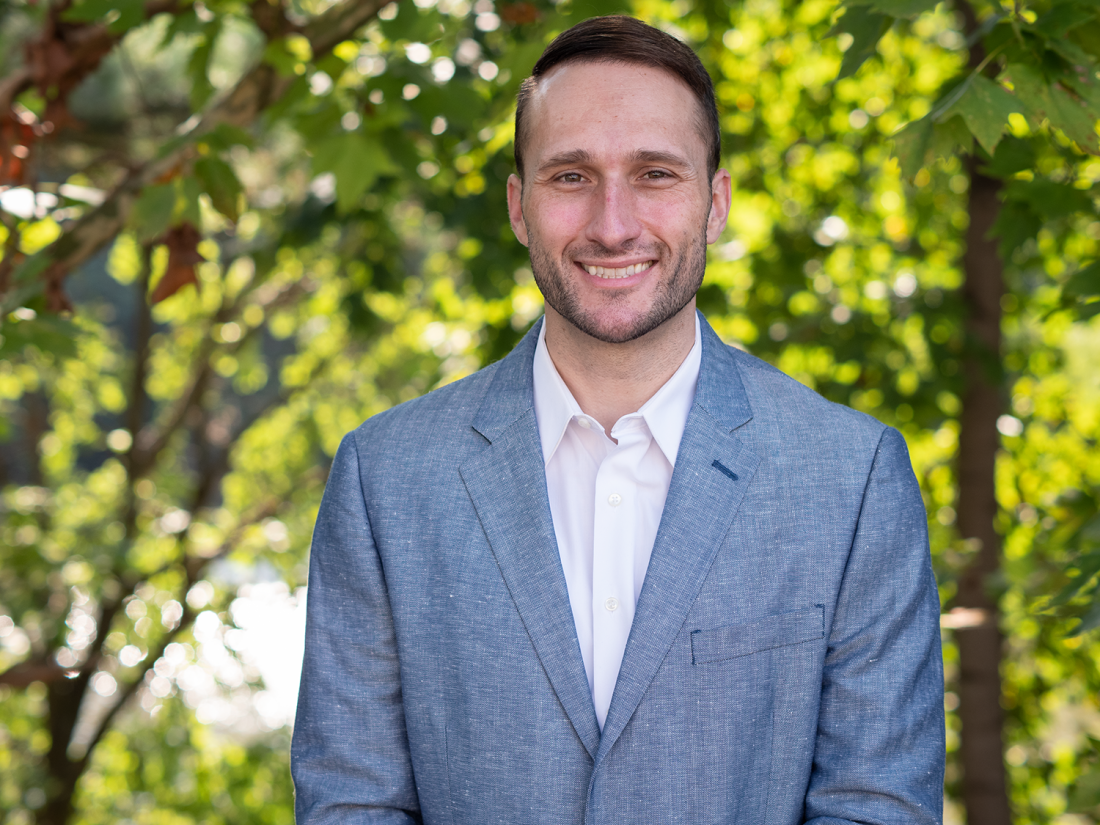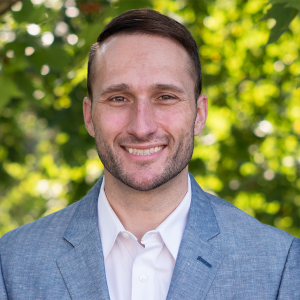Paul Perrin is Using Big Data to Take on Health Care Ills

Armed with Training in Psychology, a Love of Big Data and a Deep Desire to Serve, Paul Perrin Takes on Brain Injuries, Health Care Disparities, Veterans’ Care and More
From an early age, Paul Perrin, who runs the Social Justice in Disability and Health Lab at the University of Virginia’s School of Data Science, knew he wanted to use his career to help people.
At first, Perrin thought that meant medical school. Then, late in his undergraduate education, he realized he was more interested in the ways people coped psychologically with chronic health conditions and decided to focus on psychology, with a particular interest in how socioeconomic variables and disparities impact health care, neurological conditions, recovery from brain injury and more. One Ph.D. and numerous research publications later, Perrin had established himself in that field, earning a faculty appointment at Virginia Commonwealth University.
Still, Perrin did not quite find his niche until he honed in on the power of data science and its connections with health psychology.
“I had to take a bunch of statistics courses as part of my degree, and I really started to enjoy it,” he said. “At VCU, I was teaching a lot of very applied courses in the beginning – community psychology, health psychology – but toward the end of my 11 years there, I was most drawn to the statistics and methodology courses.”
Training his students to use data in their research, Perrin realized that he had found his niche. He and his students could use data to identify the complex systems of connections that had always been at the foundation of his research – connections between people’s socioeconomic status or group and their health, between big concepts in health care policy and real-world impacts on patients.
“I felt like I had found the place where I could really have an impact on society by moving into a research domain that allows me to think about things like health care services and the implications of health care policy,” Perrin said. “Gravitating toward that and helping students launch careers in that direction really excited me.”
That excitement brought Perrin to UVA with joint appointments in the School of Data Science and the Department of Psychology. His Social Justice in Disability and Health Lab focuses on how those areas intersect in health care and health care policy.
For example, Perrin and his students can use massive data sets that combine demographic information with electronic medical records to look at diabetes rates among different populations, or to try to determine which communities are most at risk for cardiovascular disease.
“We really focus on social determinants [race/ethnicity, socioeconomic status, etc.] are affecting health-related issues,” he said. “The first phrase in the lab is ‘social justice’ and that is really the value system that drives our work. I despise oppression in all of its forms, including racism, sexism, heterosexism, ableism, and many others.
“All of my work comes from this basic principle of wanting to fight against oppression. In my lab, we do that in the context of the health care system, seeing how forms of oppression, power systems, marginalization and access to resources play out in human health.”
With his background in psychology, Perrin has a particular interest in traumatic brain injuries and neurological conditions. He serves as co-director of the Polytrauma Rehabilitation Center Traumatic Brain Injury Model Systems Program at the Central Virginia Veterans Affairs health care system, which focuses on traumatic brain injury and spinal cord injury. Perrin in particular looks at demographic data from thousands of patients to better understand how race, educational status or socioeconomic status can affect patients’ outcomes and quality of life after an injury.
“We are looking at variables including racial and ethnic identity, positive disability identity, experiences with racial discrimination in the medical setting or with ableist microaggressions in a person’s life,” Perrin said. Patient outcomes could differ based on if someone has a supportive community, or if they are in an environment where they face barriers or discrimination, Perrin said.
“In many cases those variables are modifiable,” he said, with interventions such as training for health care professionals and workplaces to help eliminate bias or improve accessibility.
“We’re really trying to identify these big factors that are creating disparities, and then always be thinking with an eye to intervention and real world change,” Perrin said.
Perrin has worked especially closely with veterans who are facing brain or spinal cord injuries, completing his clinical internship within the Baltimore Veteran’s Affairs System and holding the co-director appointment with Central Virginia Veterans Affairs.
“I am particularly interested in bringing services to underserved veteran populations,” Perrin said. “Baltimore, for example, about 80% of the patient population are Black veterans. The Richmond VA served about a 50-50% Black and White population and also many rural areas. Trying to figure out how to broaden services and also bring telehealth services to veterans in underserved regions of the U.S. is very important to me.”
At the end of the day, though much of Perrin’s research and teaching focuses on data, the real-world impact is still what matters most to him, just as it did when he thought he had to go to medical school to make an impact.
“Data science allows me to understand in sophisticated and comprehensive ways how social determinants are playing out in people’s health,” he said. “As a result, I can identify some of the variables that are the biggest predictors of those outcomes and then think about how to develop interventions, whether that’s policy-based or health-behavior based, to modify the variables that are actually modifiable and, down the chain, improve human health.”

